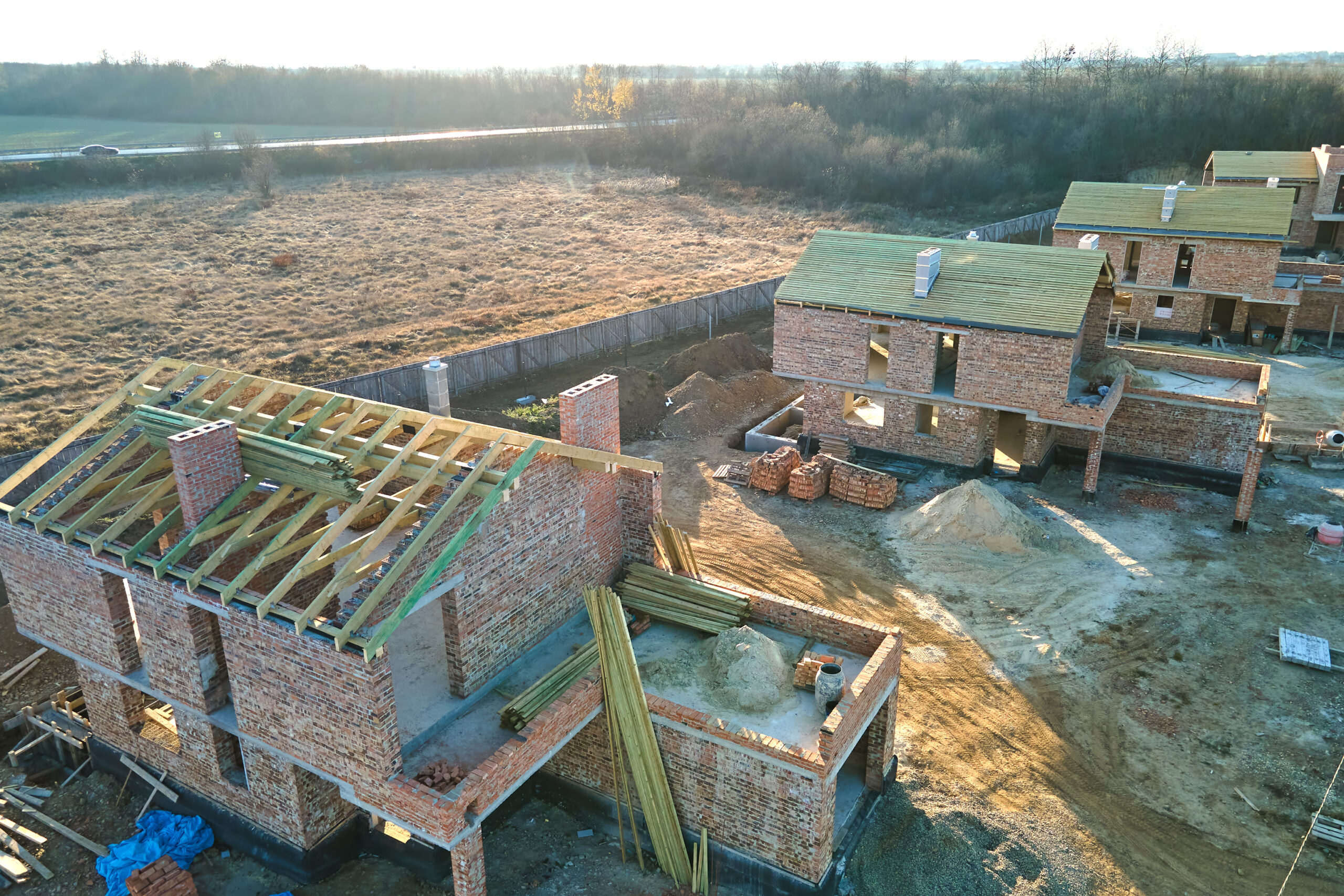Build-to-Rent Well-Positioned to Fill Housing Market Gap

- With 17.6% of multifamily properties built before 1959, many require costly renovations to retain tenants and maintain market appeal.
- Following two strong years of multifamily building permit issuance, permit applications for new multifamily construction declined more than 20% in 2023, falling in line with pre-pandemic levels.
- Build-to-rent starts have surged as lifestyle renting becomes more prevalent.
With nearly one-fifth of multifamily properties now over 65 years old, it’s time to consider solutions for rejuvenating the rental housing stock in the U.S. While building rehabs are a tried-and-true solution, build-to-rent (BTR) is an alternative that is well-positioned to expand as Americans increasingly favor renting over homeownership.
Build-to-Rent Positioned to Grow
BTR, which refers to a slice of the single-family rental (SFR) market where homes are built for rental purposes rather than acquisition, brings new quality apartment units online and, over time, can reduce the supply-demand imbalance. BTR housing, which has many of the same characteristics as single-family homes, typically consists of a group of professionally managed homes or townhomes and features modern amenities, such as a clubhouse or swimming pool.
In today’s tight housing market, BTR communities have become popular with lifestyle renters, Baby Boomers, and Generation Z, allowing its rents to grow faster than the average multifamily unit. The BTR sector’s favorable fundamentals have attracted intense interest from institutional investors seeking growth opportunities in commercial real estate.
Multifamily Housing’s Aging Problem
In cities and communities nationwide, residential properties show their age, often requiring costly and time-consuming capital improvements. An analysis of data from the U.S. Census Bureau’s 2022 American Community Survey reveals that 17.6% of renter-occupied multifamily properties (those with five or more units) were built before 1959, meaning that a substantial portion of apartment units are at risk of needing significant reinvestment. As a result, new construction projects where repairs and upgrades are less likely to be an immediate issue are on the rise.
Promising Development Trends
Multifamily permitting, a sign of future development trends, has been strong since the 2008 financial crisis but sank 20% in 2023 amid high borrowing costs. Although the multifamily pipeline contracted last year, single-family BTR starts climbed to a new high of 75,000 units last year, demonstrating investors’ confidence in the growing sector. In 2023, BTR properties accounted for 7.9% of all single-family housing starts, also an all-time high. At the same time, for-sale single-family starts have slowed down, declining 6.9% last year.
The Outlook
Although early BTR development was concentrated primarily in the Sun Belt, other regions of the country are now welcoming their own new purpose-built communities. New York, Virginia, and Maryland have all recently seen measurable upticks in BTR activity, according to Zonda. Although BTR is just a small slice of the U.S. housing market, its size and stature are likely to grow substantially as new development is needed to reverse America’s persistent housing shortage.
Explore BTR Financing with Arbor
For more than 30 years, Arbor has helped multifamily and commercial real estate clients achieve their financial goals. We focus on growing long-term relationships and collaborating with our clients on a personal level as true financial partners. Arbor has a diverse suite of loan programs available, including single-family rental portfolio financing and build-to-rent financing products.
Contact us today to request a quote from one of our expert loan originators.
About the Author
Tres Seippel, MAI, MRICS is Director, Construction Management, at Arbor Realty Trust, a national direct lender and REIT that provides debt for multifamily, single-family rental, and build-to-rent properties. He exclusively funds BTR and SFR deals throughout the U.S. and focuses on the sponsor’s capabilities, the project’s marketability, and the overall financial feasibility.
Interested in the multifamily real estate investment market? Contact Arbor today to learn about our array of multifamily, single-family rental, and affordable housing financing options or view our multifamily articles and research reports.

